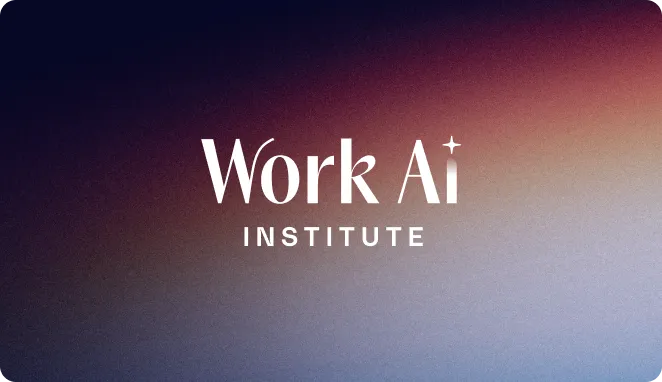- High productivity is linked to increased profitability, improved employee morale, and competitive advantage, achieved through time management techniques, workflow optimizations, and technology like automation and project management software.
- Key factors include employee skills, technology and tools, work environment, management and leadership, and organizational culture.
- These platforms enhance workplace productivity by streamlining access to information, reducing time spent searching for data, and improving decision-making and collaboration.
Workplace productivity encompasses a broad range of activities, strategies, and approaches that all seek to enhance the efficiency and effectiveness of business operations. It is the measure of how well individuals and teams utilize their skills, tools, and technology to achieve their tasks and objectives within a given timeframe. High productivity within the workplace is often linked to increased profitability, improved employee morale, and competitive advantage in the market.
To achieve optimal productivity, companies invest in a variety of methodologies and tools. These range from time management techniques and workflow optimizations to the incorporation of cutting-edge technology like automation and project management software. Furthermore, fostering a supportive corporate culture that values clear communication, employee well-being, and continuous learning is crucial for sustainable productivity.
Analyzing and improving workplace productivity is a continuous process that requires regular monitoring and adjustments to meet changing business needs and market conditions. While technology plays a significant role in improving productivity, the human element – including leadership, teamwork, and employee engagement – remains vital. Successful organizations need to align their people, processes, and technology to create an environment conducive to high productivity.
Understanding workplace productivity
In the context of a business environment, workplace productivity is a measure of efficiency. This involves analyzing the output produced relative to the input used. Optimizing productivity is essential for organizational success and competitiveness.
Definition of workplace productivity
Workplace productivity refers to the amount of work or output produced by employees within a given time frame and resource allocation. It varies by industry, often measured by performance indicators such as revenue per employee, quality of work, and completion of tasks.
Factors influencing workplace productivity
Several factors impact workplace productivity:
- Employee skills and abilities: Proficiency levels directly affect the quality and volume of output.
- Technology and tools: Advanced technology can streamline processes and improve efficiency.
- Work environment: A supportive environment with minimal distractions fosters better focus.
- Management and leadership: Effective guidance inspires employees to perform at their best.
- Organizational culture: Cultures that prioritize productivity typically yield better results.
Challenges faced by organizations in enhancing productivity
Organizations encounter several challenges:
- Adapting to change: Resistance to change can slow down the adoption of productivity-boosting practices.
- Maintaining morale: Overemphasis on productivity can negatively impact employee morale and retention.
- Resource allocation: Incorrect allocation can result in wasted effort and suboptimal productivity.
Introduction to enterprise search platforms
Enterprise search platforms play a pivotal role in streamlining access to information across an organization's digital landscape. They are crucial for enhancing workplace productivity through efficient data retrieval.
Importance of efficient information retrieval in workplace productivity
Efficient information retrieval is indispensable in today's fast-paced business environment. It ensures that employees spend less time searching for information and more time utilizing it for task completion and decision-making. Swift and relevant access to information can directly impact the productivity of teams, reducing frustration and maximizing the use of work hours.
Furthermore, by having immediate access to the right data, companies can avoid duplication of efforts and accelerate project timelines. Consequently, enterprise search platforms are a significant investment for any organization aiming to maintain a competitive edge through optimal workplace productivity.
Definition and purpose of enterprise search platforms
Enterprise search platforms serve as advanced software systems that allow employees to search for and retrieve information within an organization's various data repositories. These platforms are tailored to deal comprehensively with the complexity and scale of corporate data, offering a single access point to various structured and unstructured data sources such as databases, emails, and document management systems. Their primary objective is to improve search relevance, speed, and accuracy for the end-user, which, in turn, supports decision-making processes and productivity.
Features and capabilities of modern enterprise search solutions
Modern enterprise search solutions come equipped with several features and capabilities, enhancing their value proposition:
- Indexing: Builds a searchable index of the organization's data sources.
- Natural Language Processing (NLP): Interprets user queries in natural language to improve search relevance.
- Machine learning: Continually improves search results based on user interaction patterns.
- Security: Ensures that users can only access information they are authorized to view.
- Integration: Seamlessly integrates with a wide array of data sources and applications.
- Scalability: Efficiently manages expanding amounts of data and user queries.
These features collectively contribute to the comprehensiveness and effectiveness of enterprise search platforms.
How enterprise search platforms increase workplace productivity
Enterprise search platforms significantly enhance workplace productivity by providing powerful tools for information retrieval, collaboration, and decision support across an organization.

- Streamlining information access: Enterprise search platforms allow employees to quickly find and retrieve information. They integrate with various data sources, offering a single access point to all corporate information. Employees can use natural language queries or advanced filters to find relevant documents, emails, and data within seconds.
- Enhanced collaboration and knowledge sharing: Real-time indexing and search capabilities ensure that the most current information is always available. Team members can use enterprise search platforms to share knowledge more effectively, making it easier to find experts within the company or past project documents that can inform new work.
- Time and cost savings: By reducing the time employees spend looking for information, enterprise search platforms directly save time. They also decrease the costs associated with manual information retrieval. Tasks that used to take hours can now be completed in minutes, streamlining workflow and operations.
- Empowering decision making: Enterprise search platforms provide comprehensive insights through data analytics and reporting features. These tools help businesses to gather, organize, and analyze data. With better access to information, decision-makers can craft strategies and make informed decisions swiftly.
Improving employee productivity through tools like enterprise search platforms is essential to staying competitive in today’s world of digital work and collaboration. Make it easy for employees to find information quickly, work together better, and learn from each other.
Looking to get started with the most comprehensive and enterprise-ready search solution on the market? Get started today by getting a Glean demo.
{{richtext-cta-component}}







.webp)

